can stress cause overactive bladder
 Frequent Urination Anxiety Symptom – anxietycentre.com
Frequent Urination Anxiety Symptom – anxietycentre.comEducation " Support for urinary incontinence " BHealth BlogBHealth Blog As you already know, it is very common. Approximately treat with urinary incontinence. And about 40 have experienced fecal incontinence at least once in the last year, too. But only because incontinence is common does not take away shame. The thought of an unexpected escape is stressful. In addition, research shows that stress and incontinence are closely intertwined. But does stress, anxiety and other mental health problems cause incontinence? Or does incontinence negatively affect our mental health? With 1 in 5 American adults, or experiencing mental health problems every year, you may want to stay to find out. The impact of tension on the bladder Have you ever said, "I am so scared, I could urinate myself?" Well, it turns out there's real science behind that expression. When you are afraid or anxiety, your body enters combat or flight mode. And the adrenaline pumping through you activates your need to urinate. Therefore, there is definitely a link between what is happening in your brain (fear, anxiety, etc.) and what might be coming out of your bladder. Anxiety and stress can cause you to urinate more often, too. The impact of tension on the GI trap If you haven't heard the phrase "I was so scared, I almost urinated," perhaps you have heard "I was so scared, I almost fucked myself." Their ability to keep in the urine and feces is controlled by the same muscles so it makes sense that they would behave in the same way under stress. It is true that we know that our intestines are impacted by stress. Looking at the studies of IBS patients, too, the connection between bowel health and mental health is clear. About . It is a quite significant overlap. Incontinence and mental healthSo, go back to the chicken and egg question. Both anxiety and depression have been found in many patients with incontinence. But was the incontinence caused by mental health problems or mental health problems caused incontinence? It turns out that it is astreet when it comes to urinary anxiety and incontinence. Anxiety and incontinence interact and exacerbate each other. And, anxiety is a risk factor to develop incontinence. The same seems to be true with other mental health problems, such as depression, which is to develop incontinence. Several studies have linked depression to urinary incontinence in women especially. And, people with pelvic soil disorders (incontinence is a type of pelvic soil disorder) have to experience depression than the general population. Anxiety even raises your head when you start talking about hyperactive bladder. According to a study, exhibit symptoms of anxiety. In addition, according to the same study, about 24 per cent of patients with ACA have moderate to severe anxiety. While anxiety and incontinence don't have to go together, it's easy to see how incontinence can cause anxiety -- maybe even more anxiety than you started with. What you can do It's easy for someone outside to just say don't worry, right? However, this is definitely one of those things that is easier to say than to do. If you have significant anxiety or depression, call your doctor. For the most common daily stressors in all our lives, there are things you can do to help you worry less and hopefully decrease the leaks too. One option is to use, so the only person who knows you leaked is you. NAFC recently conducted a study that found that those who felt positively about the use of absorbent products said it was because it made them feel more protected and in control. And who doesn't want to feel more in control? In addition, you can help get the stress out of going to the store by delivering pads and disposable underwear directly to your door. Do not forget to try pilates to do or do to see if that helps with incontinence or stress too. If your stress is a symptom or a cause, getting it under control can help no matter what situation you are in. ~ Written by Lily Bird, a proud NAFC trusted partnerAbout Lily Bird is for all women with leaky laughter and drip dilemmas. We squeeze when we sneeze and drip when we jump. And we think it's time to stop saying sorry for the spy. If you're ready to tell your bladder who the boss is, Lily Bird has you covered with pads and underwear for leaky laughter and dribble dilemmas. Start your trial for free today. NAFCAssociación Nacional para la Continencia is a national, private, non-profit organization 501(c)(3) dedicated to improving the quality of life of patients with #incontinence, #bladderleakage, bedwetting, OAB, SUI, nocturia, neurogenic bladder, pelvic organ prolapse and pelvic floor disorders. The purpose of NAFC is to be the main source of public education and advocacy on causes, prevention, diagnosis, treatments and management alternatives for incontinence. Click the image to get your text book for FREE! Aeroflow Urology Pay to share your thoughts on hyperactive bladder treatments©2018 National Association for Continence. All rights reserved. Unauthorised use is prohibited. NAFC is a tax exempted organization 501(c)(3).

What Are the Causes of Overactive Bladder? | Everyday Health
Lower urinary tract symptoms: Overactive bladder syndrome

Causes of Male Urinary Incontinence | Contino®
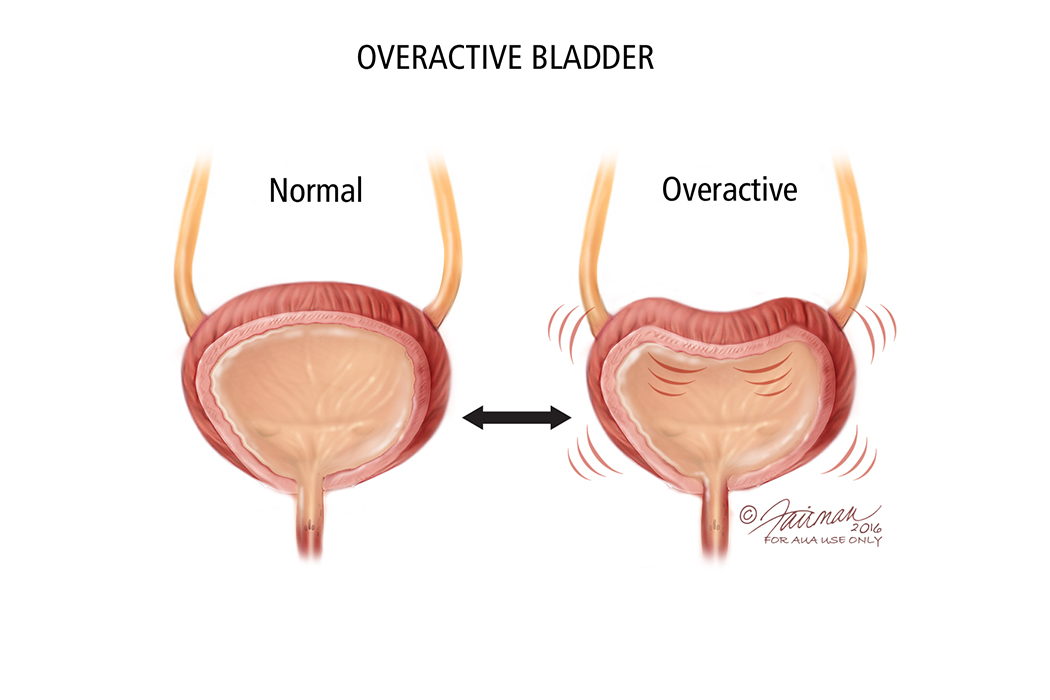
Incontinence: Symptoms & Treatment - Urology Care Foundation

Frequent Urination Anxiety Symptom – anxietycentre.com

Overactive Bladder vs. Stress Urinary Incontinence

ExcelUrology
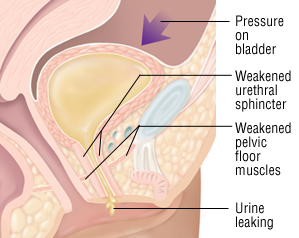
Urinary Incontinence - Harvard Health
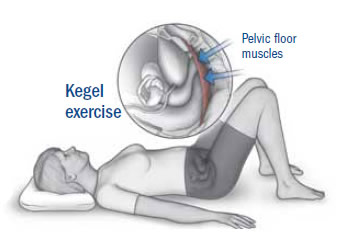
Overcoming an overactive bladder - Harvard Health

RACGP - Adult male stress and urge urinary incontinence - A review of pathophysiology and treatment strategies for voiding dysfunction in men

Is Stress Contributing To Your Incontinence? - NAFC
Incontinence: Causes, Symptoms, And Treatments | The Grand Healthcare

Urinary Incontinence in Women Symptoms, Causes & Treatment
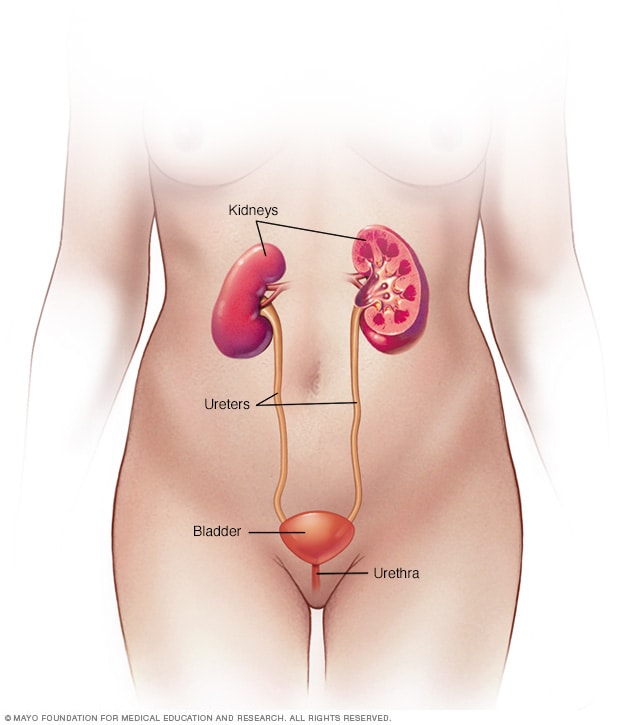
Overactive bladder - Symptoms and causes - Mayo Clinic
Evaluation and treatment of the overactive bladder

Management Tips for Living With an Overactive Bladder | HealthGuidance.org
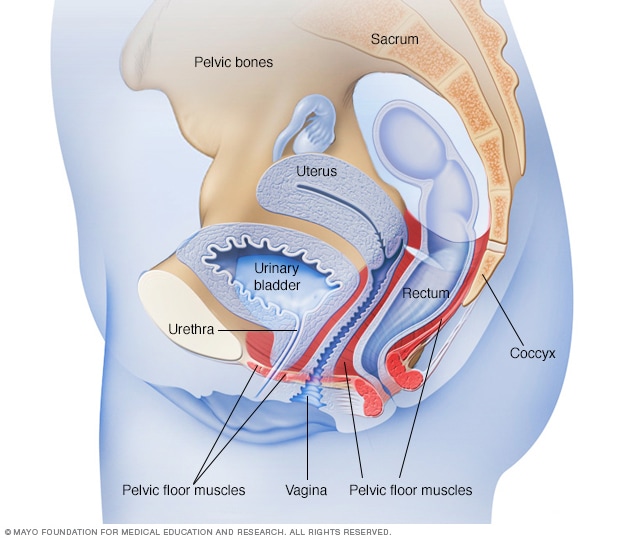
Stress incontinence - Symptoms and causes - Mayo Clinic

What Are the Causes and Types of Stress Incontinence?
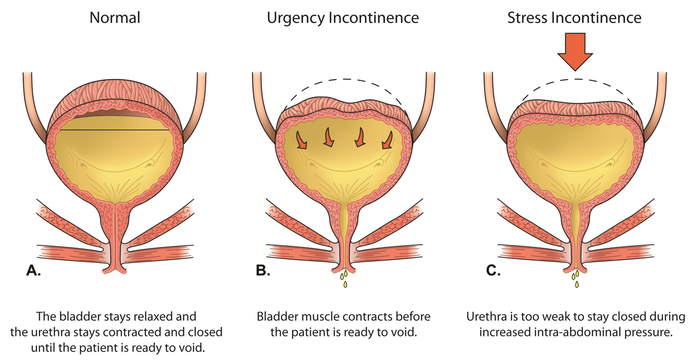
Urinary Incontinence
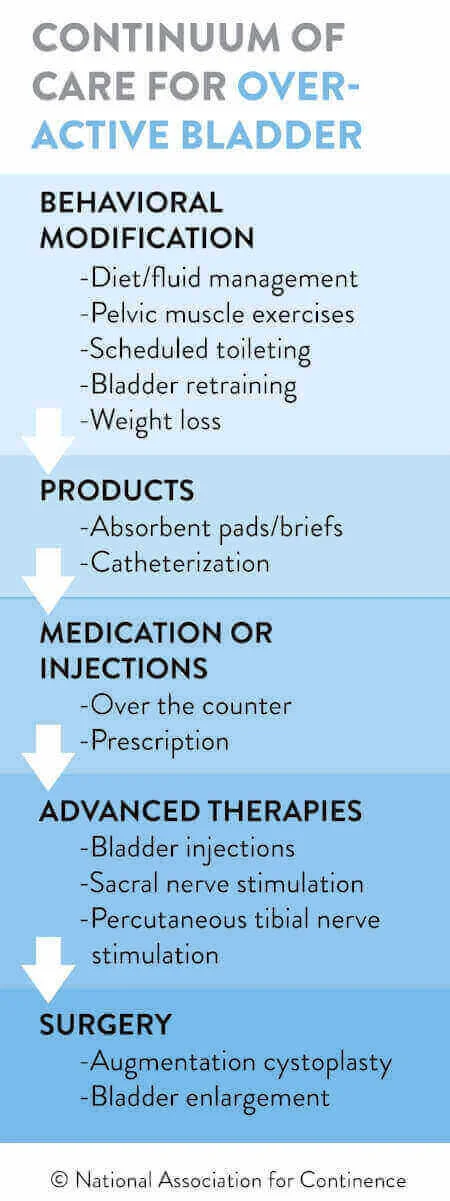
Overactive Bladder (OAB) Symptoms, Causes, and Treatment - NAFC

Urinary Incontinence in Women: Evaluation and Management - American Family Physician
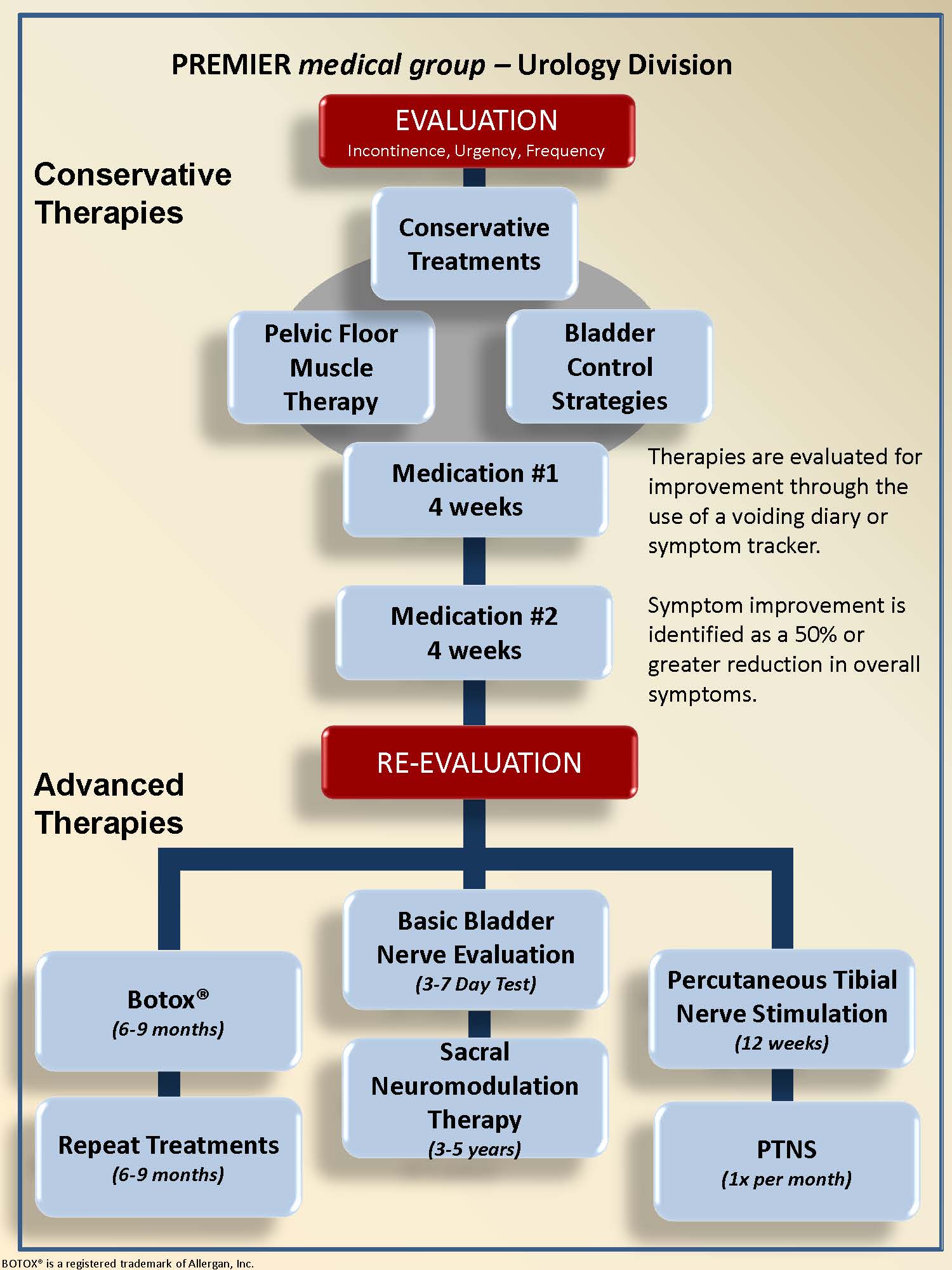
Overactive Bladder - Premier Medical Group

Incontinence During Pregnancy
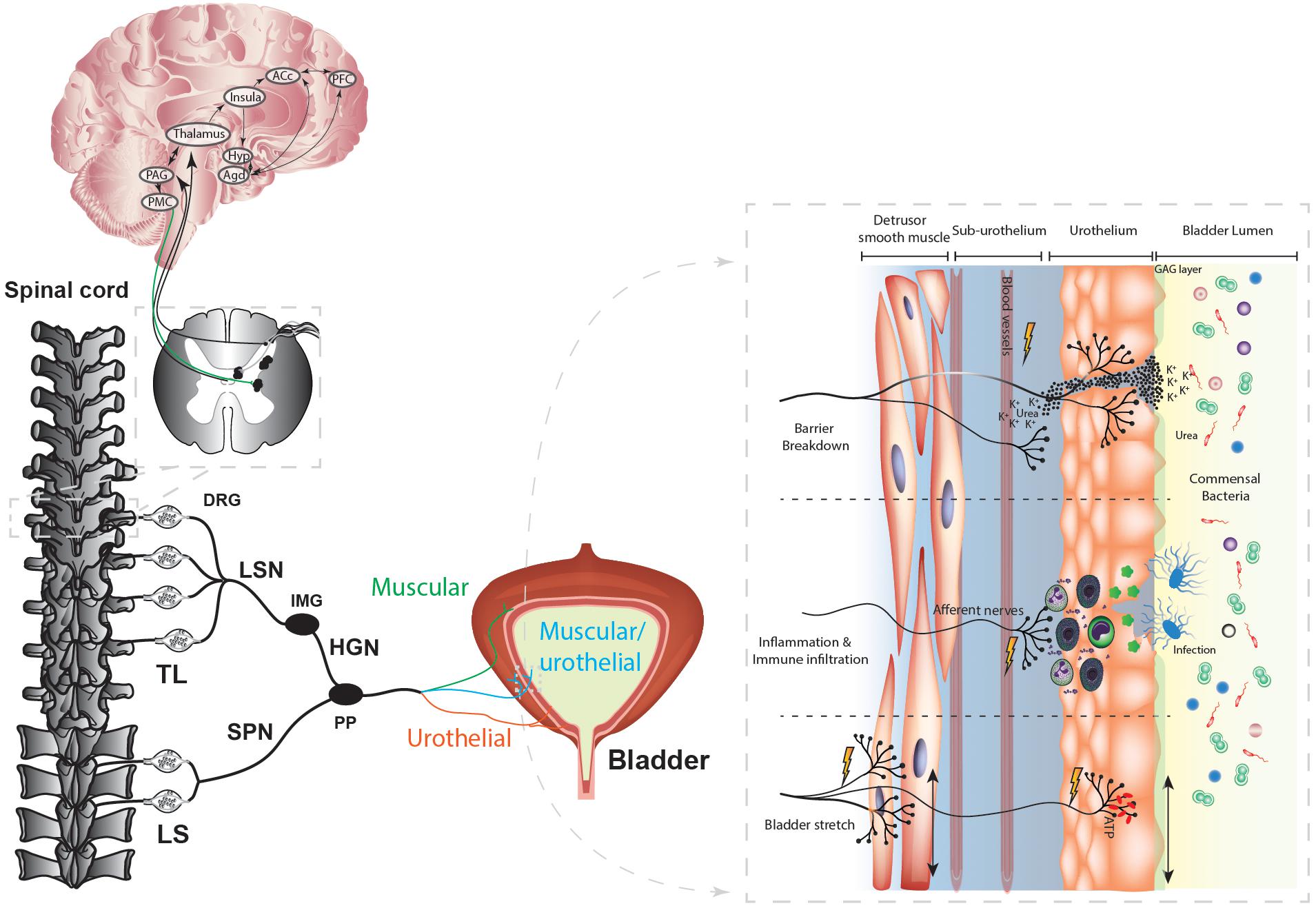
Frontiers | Mechanisms Underlying Overactive Bladder and Interstitial Cystitis/Painful Bladder Syndrome | Neuroscience

How an Overactive Bladder Affects Your Mental Health

RACGP - Overactive bladder syndrome
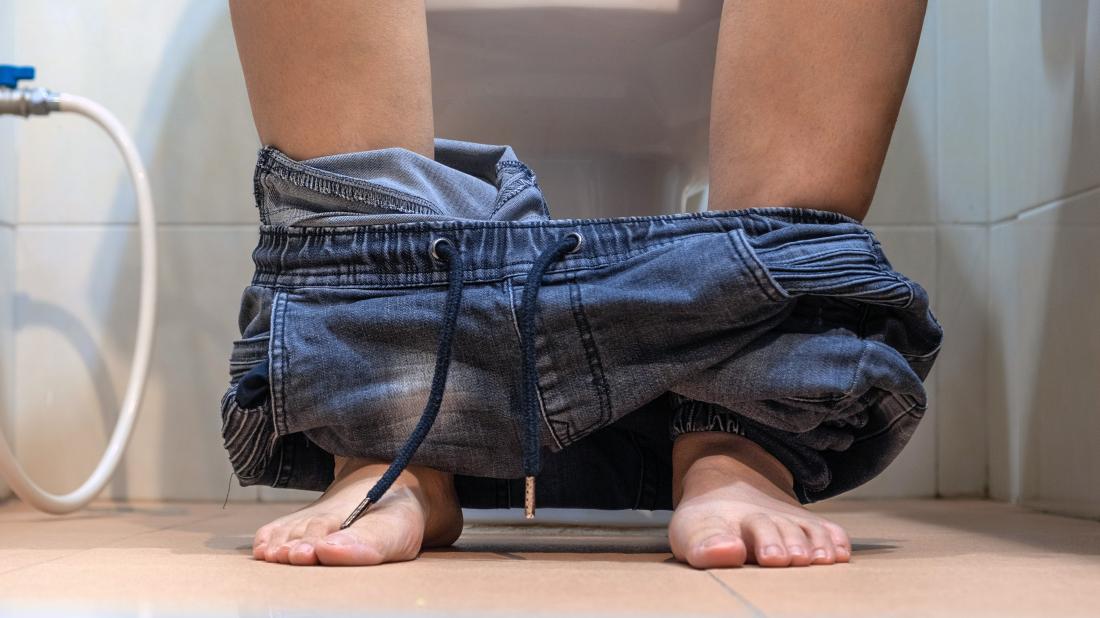
Best treatments for an overactive bladder

Diagnosis of Urinary Incontinence - American Family Physician
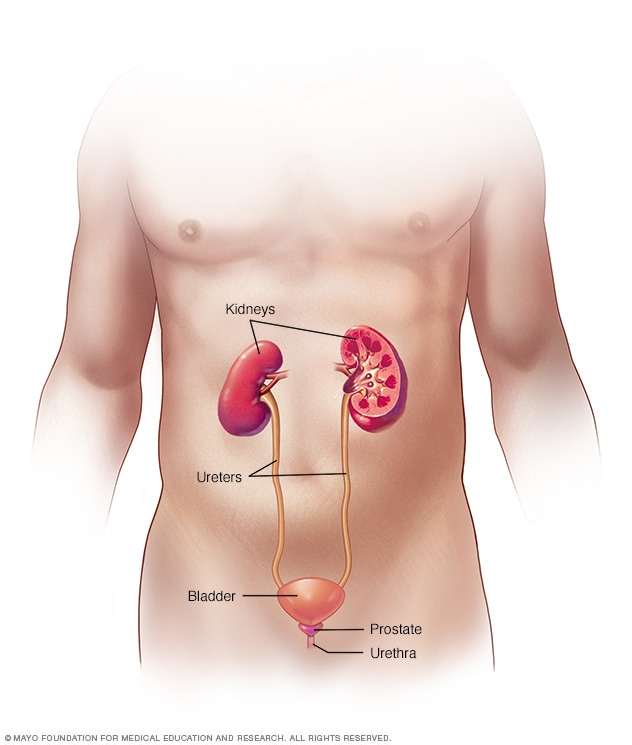
Overactive bladder - Symptoms and causes - Mayo Clinic
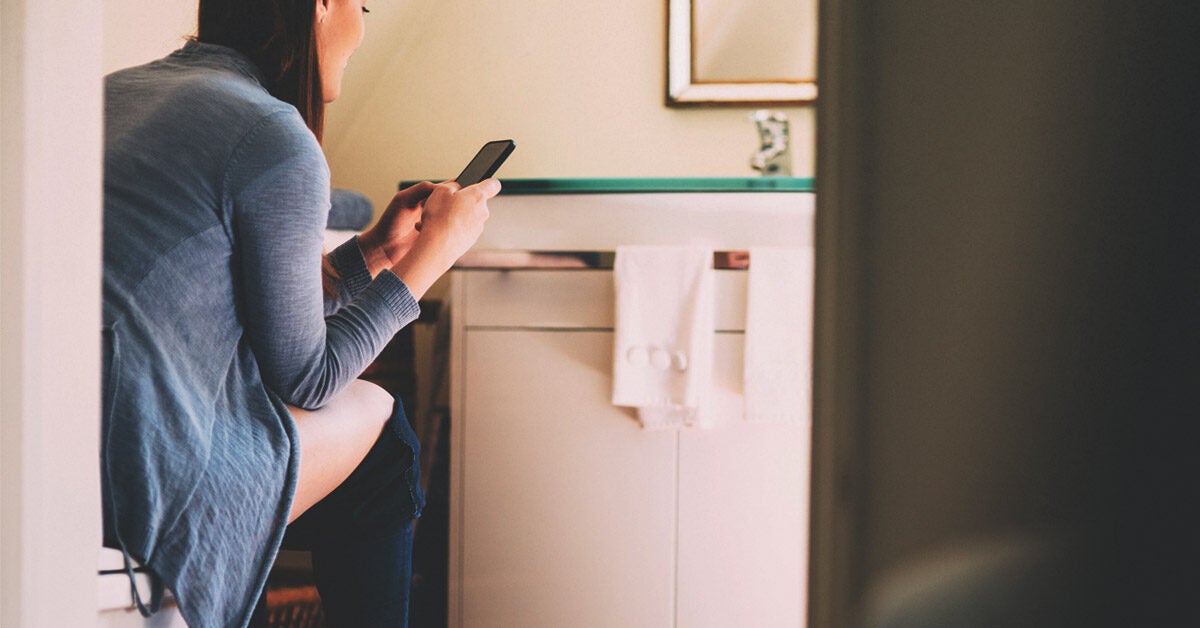
Overactive Bladder: Symptoms, Causes, and Treatments
TREATING STRESS
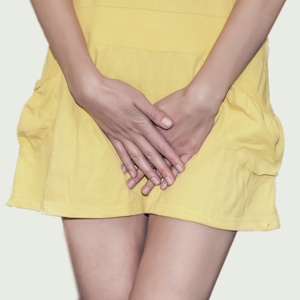
How stress and anxiety affect your bladder | Health24
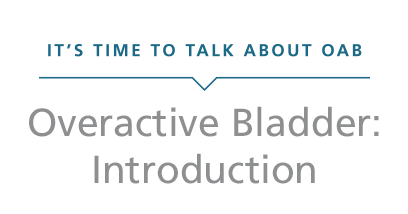
Overactive Bladder (OAB): Patient Guide
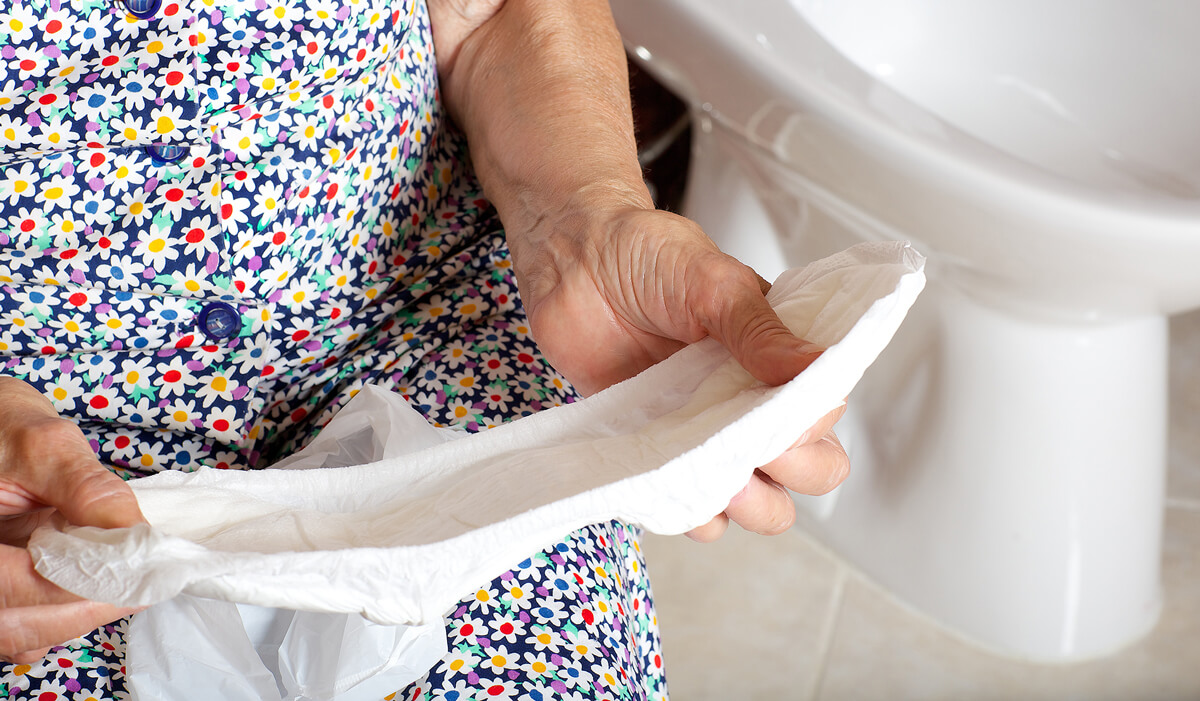
Urinary incontinence | womenshealth.gov
Overactive Bladder - OAB
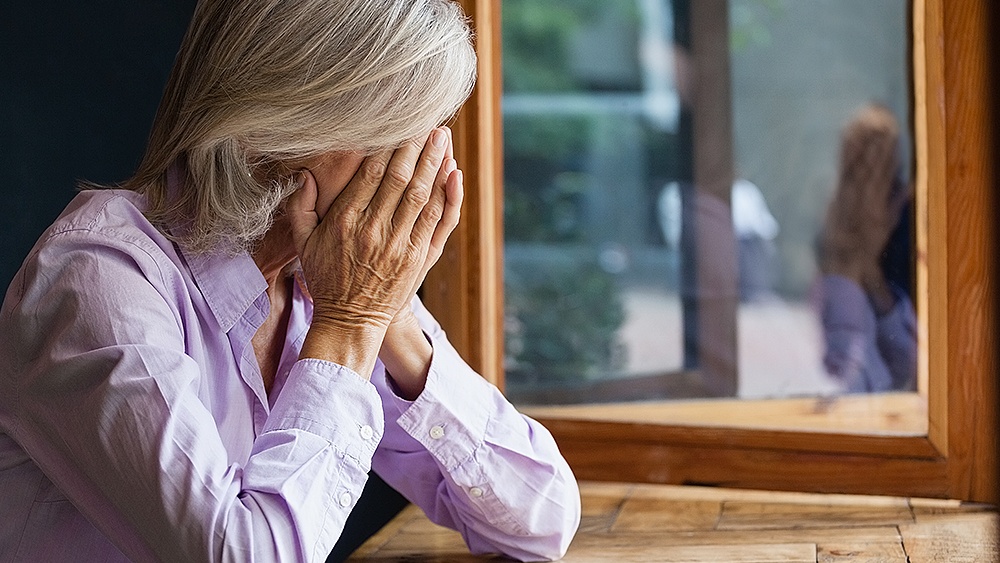
Women and LUTS: Overactive Bladder (OAB)
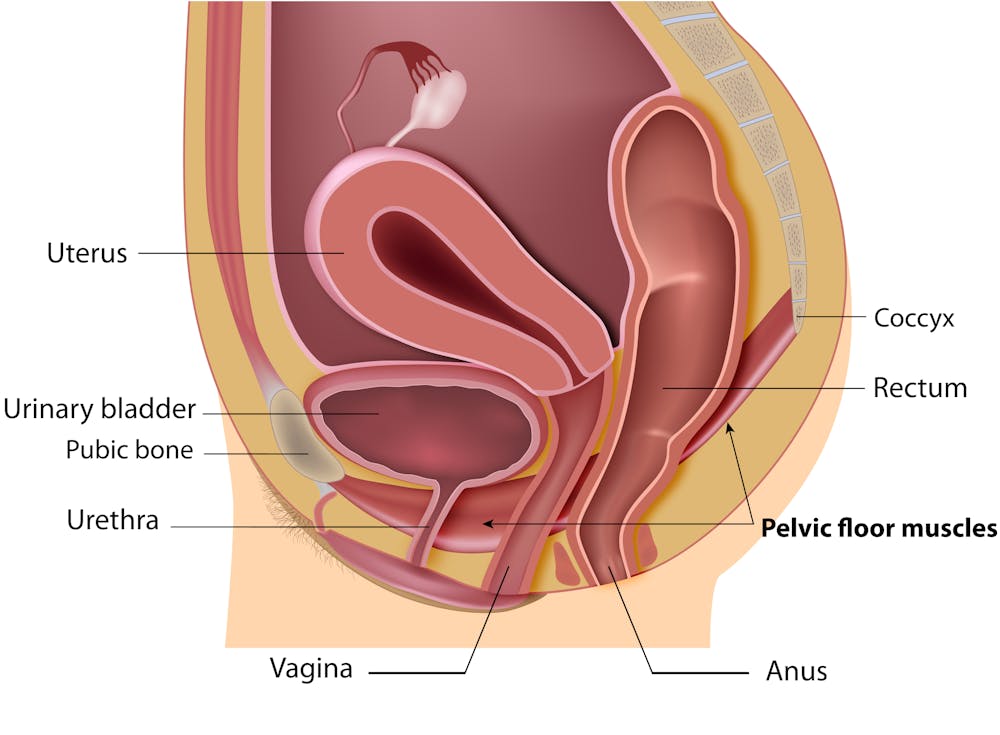
Urinary incontinence can be a problem for women of all ages, but there is a cure

Diagnosis of Urinary Incontinence - American Family Physician

What Causes Bladder Leakage in Women?
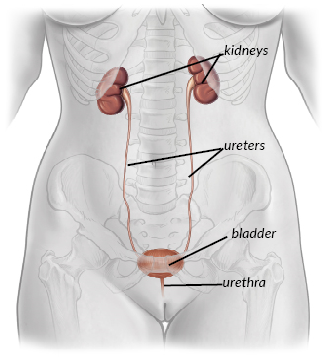
Overactive Bladder - Your Pelvic Floor
Posting Komentar untuk "can stress cause overactive bladder"